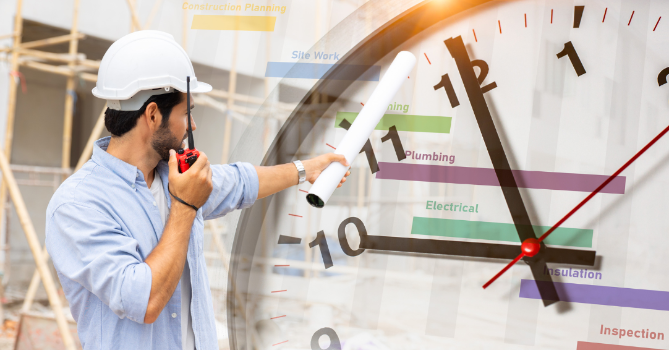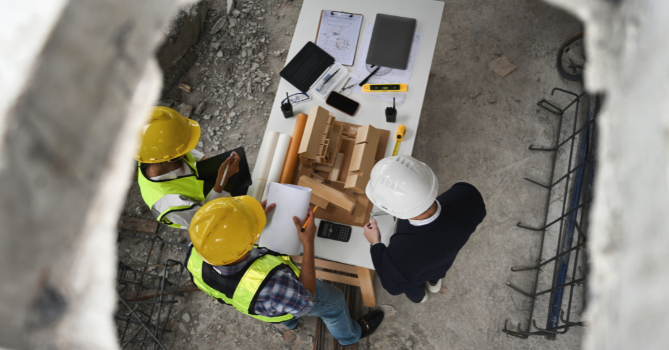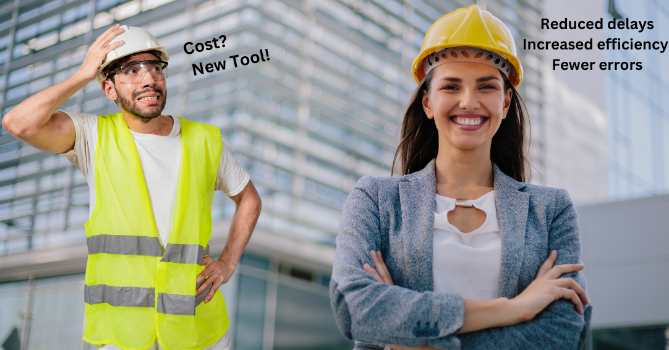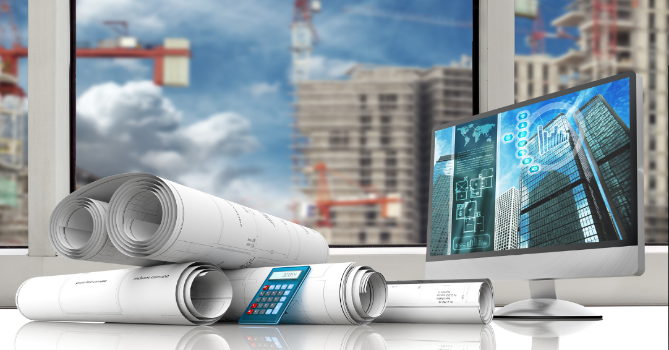
The Role of AI in Planning Construction Project Schedules
Introduction
The construction industry is more complex than ever. Traditional methods for project scheduling struggle to keep up with the size and demands of modern projects. This is where artificial intelligence (AI) comes in. AI is quickly transforming the way we plan, execute, and manage construction project schedules. By automating tasks, predicting delays, and offering real-time insights, AI can help projects stay on track and on budget. As construction continues to evolve, companies that fail to embrace AI risk falling behind. AI isn’t just a luxury anymore, it’s becoming a necessity for those looking to improve project efficiency and performance.
Role of AI in Construction Scheduling
AI in construction scheduling refers to the use of machine learning and data-driven algorithms to create, adjust, and monitor project timelines. It takes historical data from past projects and uses it to predict future scheduling conflicts. This means AI can identify problems like resource shortages or weather delays before they even happen.

Traditional scheduling requires constant manual updates, but AI does this automatically, making it faster and more accurate. The result? Construction managers can make better decisions in less time, leading to smoother project execution and fewer disruptions.
AI Enhances Construction Project Planning
AI makes construction planning smarter and more efficient. It automates repetitive tasks, such as creating schedules and making adjustments when there are changes in the project. By analyzing huge amounts of data, AI can spot potential issues, such as materials not arriving on time, or equipment breaking down. With this foresight, AI helps construction teams avoid delays and costly mistakes.

Another major benefit is that AI uses historical project data to improve future scheduling. For example, if a past project experienced delays because of bad weather, AI can use that information to schedule future projects around similar patterns. Companies that have adopted AI for project planning report faster project completion times and more accurate schedules. AI isn’t just helping teams plan better; it’s revolutionizing the entire planning process by making it smarter and more proactive.
AI and BIM Integration
AI and Building Information Modeling (BIM) are a powerful combination for construction scheduling. BIM provides a detailed 3D model of a project, complete with data on materials, timelines, and resources. When AI is applied to BIM, it analyzes all this data and suggests the best possible project schedule. This means fewer mistakes, better coordination, and less time spent revising plans. AI can even predict when materials will run out or when a certain task might cause a delay, giving project managers the ability to act before problems occur. Together, AI and BIM help create more efficient, reliable schedules, saving time and money on large construction projects.
Predictive Analytics in Scheduling
AI’s predictive analytics feature is one of its most valuable tools for scheduling. It allows construction managers to anticipate potential problems before they arise. For example, AI can predict if a piece of equipment might break down based on usage data or if a supplier might not deliver materials on time due to logistical issues. With this information, project managers can adjust schedules in real-time, preventing delays that could cost thousands of dollars.

Predictive analytics also help teams make smarter decisions about resource allocation. Instead of guessing when materials or labor will be available, AI provides accurate data-driven predictions. This helps projects run smoother and with fewer surprises. The ability to predict and plan for the unexpected makes AI an essential tool in today’s construction scheduling.
Case Studies: AI in Action
Let’s look at a few real-world examples of AI improving construction scheduling. One large infrastructure project was facing potential delays. By integrating AI, they were able to avoid a six-week delay by adjusting schedules in real-time, preventing what would have been a major setback. Another commercial project cut down on rework by using AI to detect scheduling conflicts ahead of time. Instead of waiting for problems to surface, AI identified them early, saving both time and money.

These success stories show how AI doesn’t just improve efficiency, it actively prevents costly mistakes. More companies are starting to realize that AI is not just a nice-to-have; it’s a game changer for delivering projects on time and within budget.
Overcoming Challenges in AI Adoption
While AI offers many benefits, adopting it in construction scheduling does come with challenges. Many construction companies worry about the cost of AI technology or how difficult it will be to integrate with their current systems. Some teams might also need time to get used to the new tools. But these challenges can be overcome.

Many AI platforms are designed to be scalable, meaning companies can start small and expand usage as they see results. Training programs are also available to help teams get up to speed quickly. Companies that have embraced AI find that the benefits—reduced delays, increased efficiency, and fewer errors—far outweigh the initial investment and learning curve.
Future Trends in AI for Construction Scheduling
The future of AI in construction scheduling is exciting. As AI continues to evolve, we’ll see even more advanced tools that can handle larger projects and more complex data. AI is also starting to integrate with other technologies, such as the Internet of Things (IoT), which will provide even more real-time data for scheduling. Machine learning models are improving, which means AI will become more accurate at predicting issues and suggesting solutions.

In the near future, we might see fully autonomous project scheduling, where AI handles every step, from planning to execution, with little human intervention. The potential for AI to reshape construction scheduling is enormous, and the industry is just beginning to tap into its full capabilities.
Conclusion
AI is revolutionizing the way construction projects are scheduled. From predicting delays to automating repetitive tasks, AI offers tools that save time, reduce costs, and improve project outcomes. As the construction industry continues to evolve, adopting AI will become more critical for companies looking to stay competitive. The future of construction is here, and AI is leading the charge. Now is the time to embrace these tools and lead your projects into a more efficient and successful future.